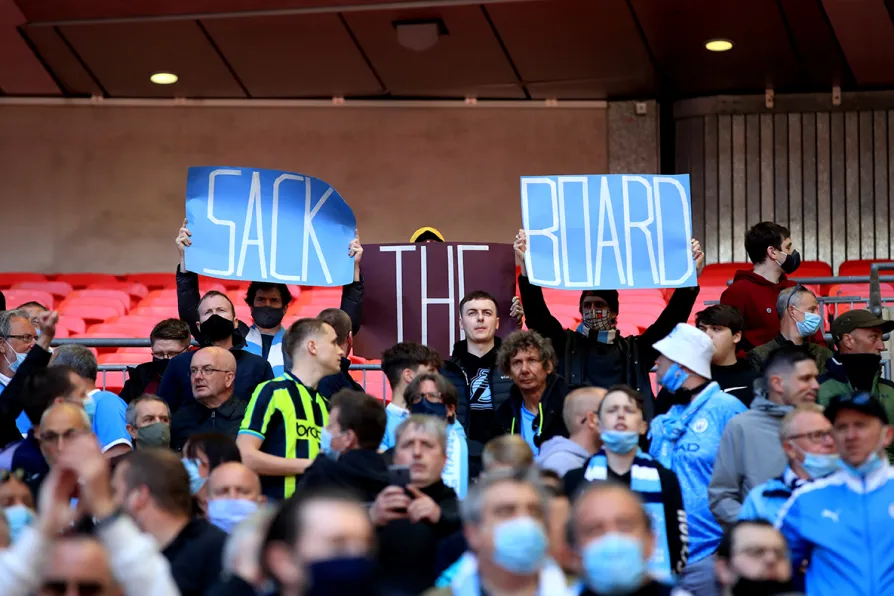Sporting calendar hit by regional instability with tournaments in the Gulf abandoned
A salary cap will not improve football's financial health
As long as there is a ridiculous amount of money in the game, those whose work brings it in shouldn’t be begrudged it, writes JAMES NALTON

 Man City fans hold up signs protesting against the European Super League during the 2021 League Cup final in April
Man City fans hold up signs protesting against the European Super League during the 2021 League Cup final in April
UEFA’s introduction of Financial Fair Play (FFP) regulations during the last decade were designed to “improve the overall financial health of European club football.”
Uefa said that “the aim of financial fair play is not to make all clubs equal in size and wealth, but to encourage clubs to build for success rather than continually seeking a quick fix.”
Events of the past few years, and especially in the current transfer window, show this is something they have been unable to achieve, with Barcelona perhaps the most obvious recent example.
Similar stories

With climate change, commercial overload and endless fixtures, footballers are being pushed to breaking point. It’s time their unions became a more powerful, unified force, writes JAMES NALTON

DAVID CONWAY writes how recognising trade unions for non-playing staff could help the club rediscover success both on and off the football pitch












